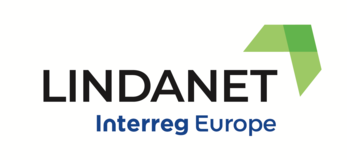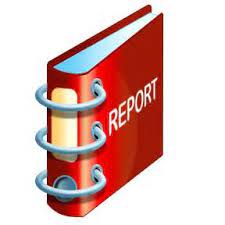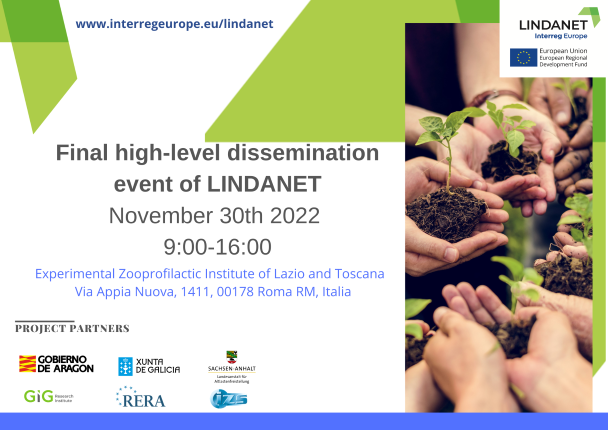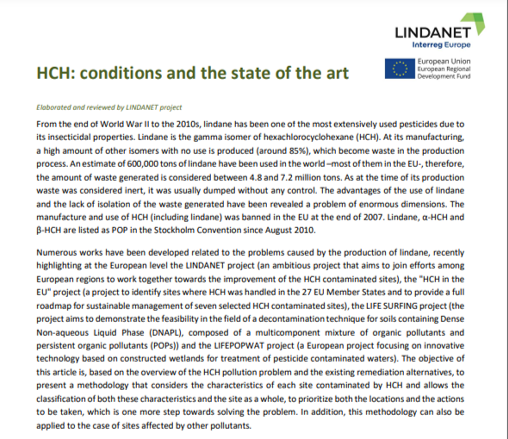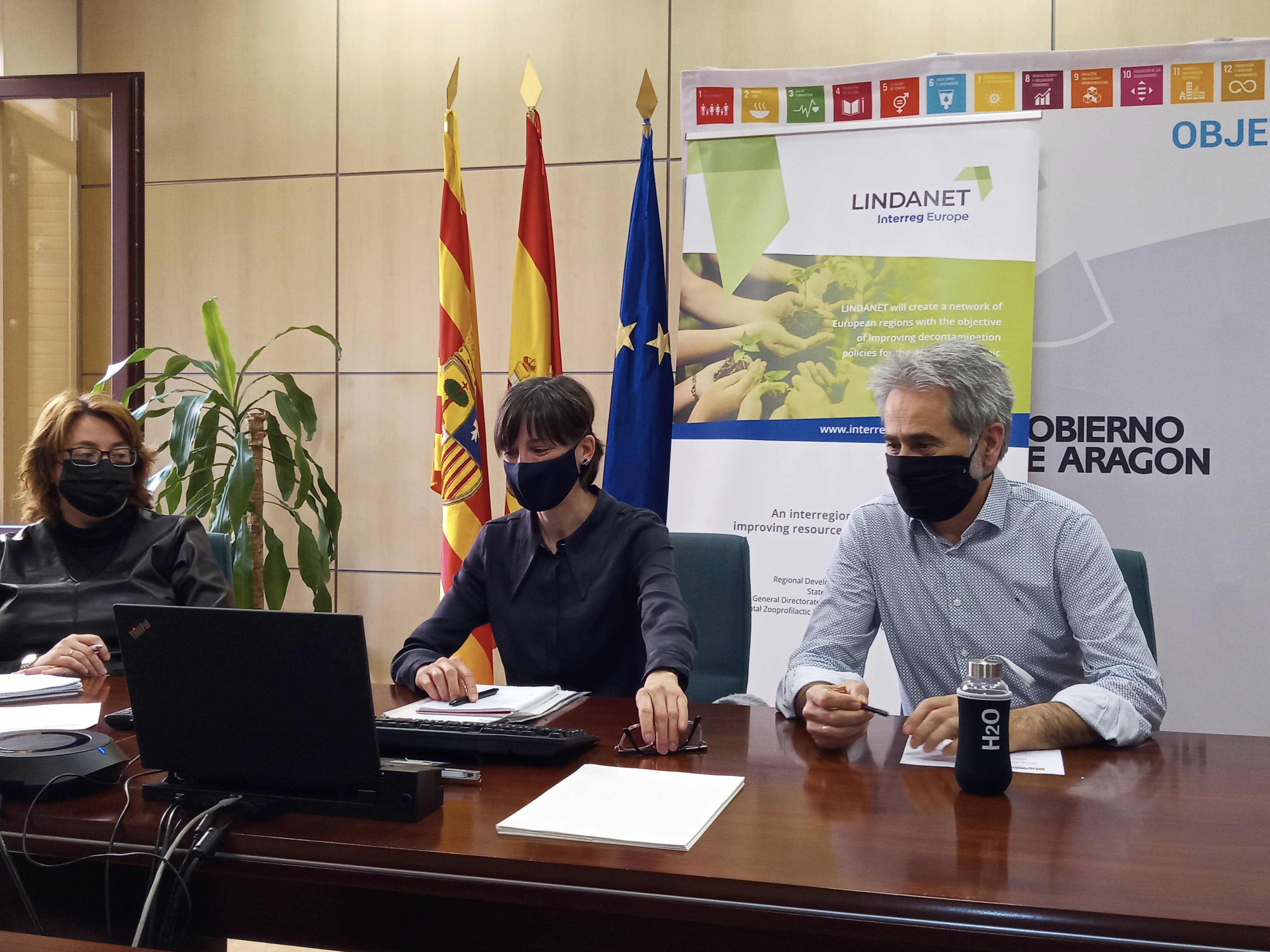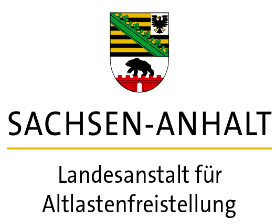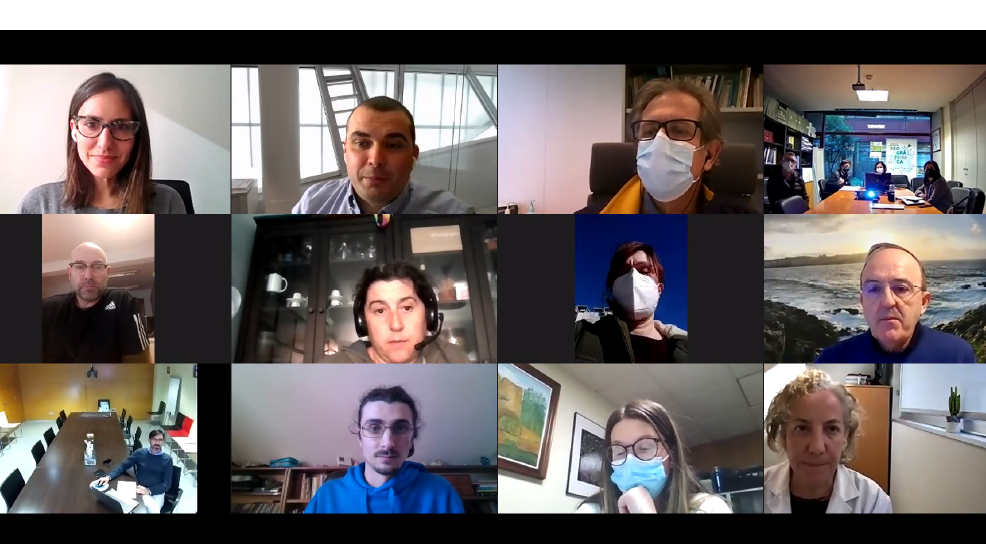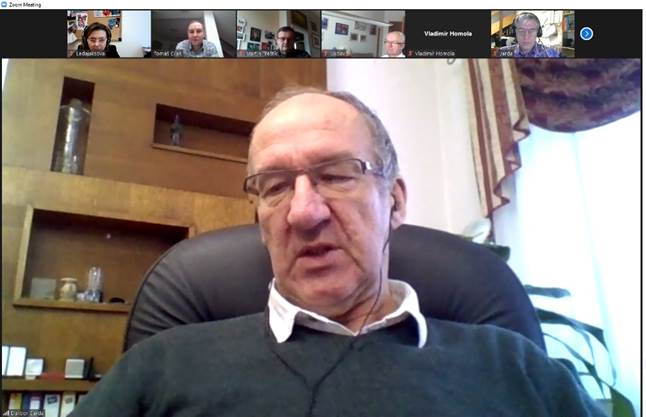LINDANET project is implemented within the INTERREG EUROPE program and is co-financed by European Union (ERDF). For more information about the project see interregeurope.eu/lindanet.
4th Interregional Thematic Workshop of the LINDANET project, Interreg Europe project, devoted to Action Plans development.
The 4th bi-annual event of LINDANET project, which aims to join efforts among European regions to work together towards the improvement of the HCH (Lindane) contaminated sites, took place from 8th to 9th of June 2021. The meeting was planned to take place in Katowice, Silesian Voivodeship, Poland, but due COVID-19 it was organized online. This didn't stop partners to make it successful. The importance of the issues tackled during the meeting remains on a high level. The main topic of the 4th semester's Interregional Thematic Workshop (ITW), organized by the Central Mining Institute in Katowice (Poland), was 'Action Plan development'.
The meeting was divided into two sessions. The 1st part of the 1st session were dedicated to Jaworzno area. Grzegorz Gzyl, manager of the project from Central Mining Institute in Katowice showed the Jaworzno site around during the virtual trip. The Municipality of Jaworzno provided information about the city and its green areas and then Grzegorz Gzyl presented the Jaworzno site – former sandpit, where the production of lindane had started and taken place for several years - the Chemical Plant Organika-Azot S.A. has operated since 1921. The lindane production of consequently HCH waste generation has been performed predominantly from 1965 till 1982 in Jaworzno. Over 200 000 tons of hazardous waste is still in these areas, including a minimum of 31 300 tons of HCH waste.
During the 2nd part of the 1st session, the project partners' representatives presented the main conclusions from three previous ITW meetings. Sonia Velilla and Elena Cano from the Government of Aragon presented conclusion regarding governance issue (the subject of 1st ITW held in November 2019), Michael Trump from State office for contaminated sites, Germany presented conclusions of technical aspects (the subject of 2nd ITW held online in June 2020) and finally Zdenek Hanzal from Regional Development Agency of South Bohemia presented conclusions regarding social aspects (the subject of 3rd ITW held online in November 2020). All presentations showed that the ITW meetings are one of the key activities of the project, which synthesize partners' experiences in tackling contamination and create a space for discussion and exchange of experiences at the international level and finally can be transferred to other regions.
Experts from the University of Saragossa, Spain (Luis Salvatella), SARGA, Spain (Carlos Ayala and Alicia Sánchez), Geo-Logik, Poland (Wojciech Irmiński) presented the progress of work of LINDANET project's Joint studies and outstanding conclusions.
The 2nd session was devoted to Action Plans of project partners' regions. In nutshell, an Action Plan is a document for the region of each project partner involved in the LINDANET project that contains actions linked to the project and deriving directly from the interregional learning process. An action plan is endorsed by the relevant policy responsible project partners. It indicates basic information such as a description of actions, stakeholders involved, timeframe, costs, and funding sources. The actions to be implemented within Action Plan are the basis for phase 2 monitoring of LINDANET project.
The series of Action Plans were presented during the 4th ITW meeting, that is Aragon Action Plan (SP), Action Plan for the O Porriño area (Galicia)(SP), Action Plan for the region of Saxony Anhalt (DE), Action Plan for South Bohemian Region (CZ), Action Plan for Silesian Voivodeship (PL) and Action Plan for the region of Latium Region – Site of National Interest (SNI) "Sacco River Basin" (IT). All Action Plans have tackled the really important issue for representing project partners' regions. They proved that they could successfully pave the way to phase 2 of the LINDANET project and revealed how the learning will be transformed into actions.
The process of preparation of the Action Plans was lead by John Vijgen (IHPA), the expert who has advised the project partners' regions how to understand the barriers that they can work on and form the common base for the future guidelines.
